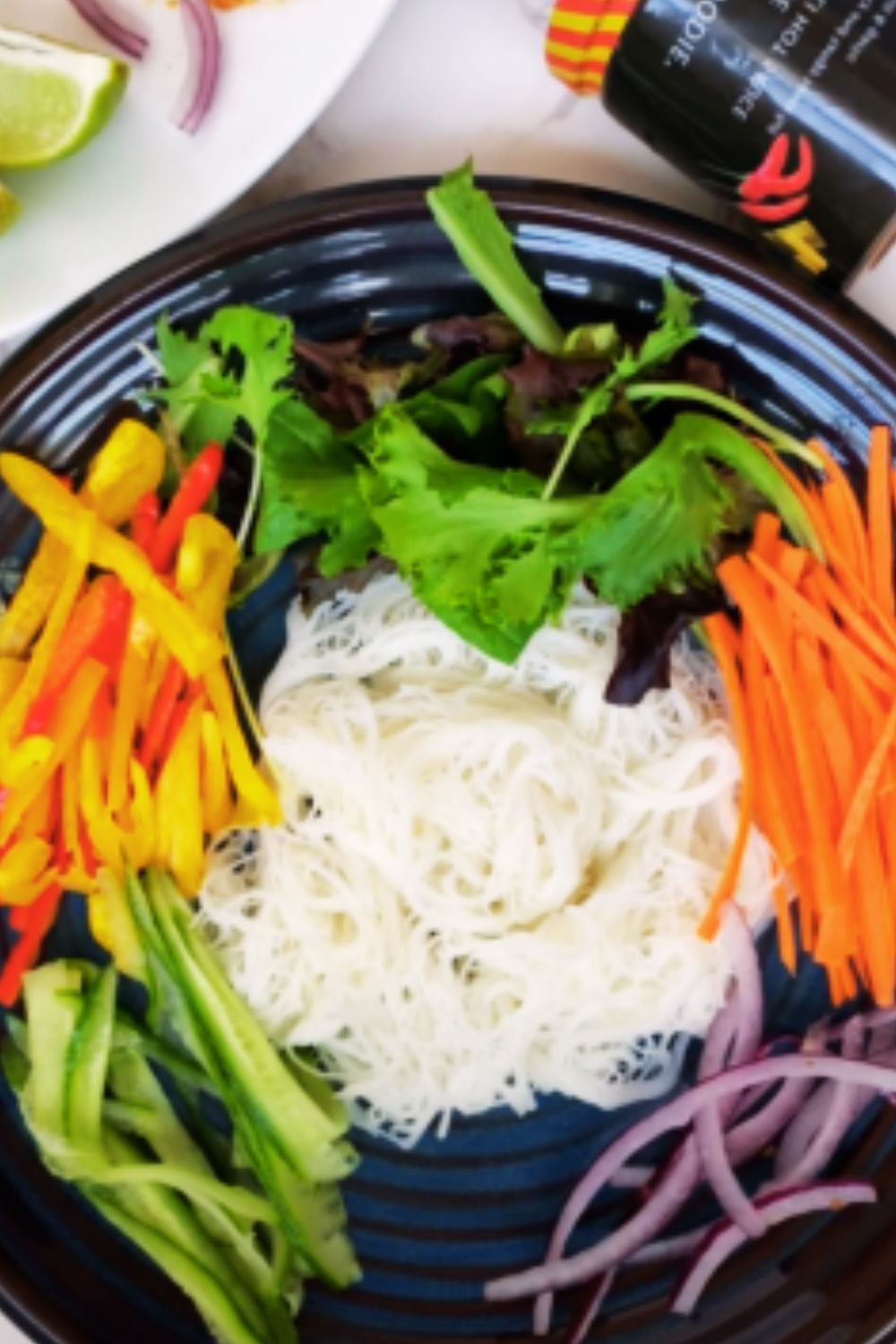There’s something deeply satisfying about a plate of tender, flavorful meatballs. They’re the epitome of comfort food across many cultures, but often come with a hefty calorie price tag. That’s why I’ve fallen head over heels for these Mediterranean Baked Turkey Meatballs – they deliver all the satisfaction without the guilt.
I discovered this recipe during a health kick several years ago and have been perfecting it ever since. The Mediterranean flavors – lemon, oregano, garlic, and fresh herbs – transform lean turkey meat into something truly special. Plus, baking instead of frying makes these meatballs both healthier and easier to prepare.
What sets these meatballs apart is their versatility. I’ve served them as appetizers at dinner parties, packed them into pita pockets for quick lunches, and paired them with roasted vegetables for a satisfying dinner. They’re a hit with both adults and picky eaters alike – always a win in my kitchen!
What Makes These Turkey Meatballs Special?
Before we dive into the recipe, let’s talk about what makes these Mediterranean Baked Turkey Meatballs stand out:
- Lean Protein: Turkey meatballs contain less saturated fat than their beef counterparts while delivering the same protein punch.
- Mediterranean Flair: The combination of fresh herbs, lemon, and spices gives these meatballs a bright, distinctive flavor profile.
- Versatility: These meatballs work beautifully as an appetizer, in sandwiches, with pasta, or as the star of a healthy bowl.
- Make-Ahead Friendly: Prepare a batch on Sunday for easy meals throughout the week.
- Allergy-Friendly Options: Easy to adapt for gluten-free or dairy-free diets with simple substitutions.
Nutritional Benefits of Mediterranean Baked Turkey Meatballs
These meatballs aren’t just delicious – they’re nutritional powerhouses too. Here’s a breakdown of what makes them a healthy choice:
| Ingredient | Key Nutrients | Health Benefits |
|---|---|---|
| Ground Turkey | Lean protein, B vitamins, selenium | Supports muscle growth, aids metabolism, boosts immune function |
| Fresh Herbs (Parsley, Mint) | Vitamins A, C, K, antioxidants | Anti-inflammatory properties, immune support |
| Garlic | Allicin, manganese, vitamin B6 | Cardiovascular benefits, immune system support |
| Lemon Zest | Vitamin C, antioxidants | Boosts immunity, aids digestion |
| Whole Grain Breadcrumbs | Fiber, B vitamins | Supports digestive health, provides sustained energy |
| Olive Oil | Monounsaturated fats, vitamin E | Heart health, anti-inflammatory properties |
| Feta Cheese | Calcium, protein, probiotics | Bone health, digestive benefits |
Essential Ingredients for Perfect Mediterranean Turkey Meatballs
The secret to exceptional meatballs lies in quality ingredients. Here’s what you’ll need:
For the Meatballs
- 2 pounds lean ground turkey (93% lean)
- 1 cup whole grain breadcrumbs (or gluten-free alternative)
- 2 large eggs, lightly beaten
- 1/2 cup crumbled feta cheese
- 1/4 cup finely chopped red onion
- 3 cloves garlic, minced
- 1/4 cup fresh parsley, finely chopped
- 2 tablespoons fresh mint, finely chopped
- 2 tablespoons extra virgin olive oil
- Zest of 1 lemon
- 1 tablespoon dried oregano
- 1 teaspoon ground cumin
- 1 teaspoon kosher salt
- 1/2 teaspoon freshly ground black pepper
- 1/4 teaspoon red pepper flakes (optional)
For the Tzatziki Sauce
- 2 cups Greek yogurt
- 1 medium cucumber, seeded and finely grated
- 2 cloves garlic, minced
- 2 tablespoons fresh dill, chopped
- 1 tablespoon fresh lemon juice
- 1 tablespoon extra virgin olive oil
- 1/2 teaspoon salt
- 1/4 teaspoon freshly ground black pepper
Ingredient Notes and Substitutions
I believe in flexible cooking, so here are some substitution options if you need to adapt the recipe:
- Ground Turkey: Can be replaced with ground chicken for a similar lean protein option. If you’re not concerned about fat content, ground lamb would provide an authentic Mediterranean flavor.
- Breadcrumbs: Use gluten-free breadcrumbs or almond meal for a gluten-free version.
- Feta Cheese: For a dairy-free option, omit the feta and add an extra tablespoon of olive oil and 1/4 teaspoon more salt for flavor.
- Fresh Herbs: While fresh herbs provide the best flavor, you can substitute dried herbs in a pinch (use 1/3 the amount).
- Tzatziki: For dairy-free, make a tahini sauce instead with tahini paste, lemon juice, garlic, and water.
Step-by-Step Instructions

Preparing the Meatball Mixture
- Preheat your oven to 400°F (200°C) and line a large baking sheet with parchment paper.
- In a large mixing bowl, combine the ground turkey, breadcrumbs, beaten eggs, crumbled feta, chopped red onion, minced garlic, chopped parsley and mint, olive oil, lemon zest, dried oregano, cumin, salt, black pepper, and red pepper flakes (if using).
- Mix gently with your hands until just combined. Be careful not to overmix as this can make the meatballs tough.
- Let the mixture rest for 10 minutes. This allows the breadcrumbs to absorb moisture and helps the meatballs hold their shape.
Forming and Baking the Meatballs
- With slightly damp hands (to prevent sticking), form the mixture into meatballs about 1½ inches in diameter (about the size of a golf ball). You should get approximately 24-28 meatballs.
- Arrange the meatballs on the prepared baking sheet, leaving a little space between each one.
- Drizzle the meatballs lightly with olive oil.
- Bake in the preheated oven for 20-25 minutes, or until the meatballs are browned on the outside and register an internal temperature of 165°F (74°C) on a meat thermometer.
Making the Tzatziki Sauce
While the meatballs are baking, prepare the tzatziki sauce:
- Place the grated cucumber in a clean kitchen towel and squeeze out excess moisture.
- In a medium bowl, combine the Greek yogurt, drained cucumber, minced garlic, chopped dill, lemon juice, olive oil, salt, and pepper.
- Stir well to combine, then refrigerate until ready to serve.
Pro Tips for Perfect Turkey Meatballs
Over the years, I’ve learned a few tricks that make these meatballs absolutely foolproof:
- Don’t Overmix: Mix the ingredients just until combined to keep the meatballs tender.
- Chill the Mixture: If you have time, chill the meatball mixture for 30 minutes before shaping. This makes them easier to form and helps them hold their shape.
- Uniform Size: Use a cookie scoop or measuring spoon to ensure all meatballs are the same size, which ensures even cooking.
- Test for Seasoning: Cook a small piece of the mixture in a pan to check the seasoning before forming all the meatballs.
- Rest Before Serving: Let the meatballs rest for 5 minutes after baking to allow the juices to redistribute.
Common Mistakes to Avoid
Even experienced cooks can run into issues with meatballs. Here are some pitfalls to avoid:
- Using meat that’s too lean: If using extremely lean turkey (99%), add an extra tablespoon of olive oil to prevent dryness.
- Cold ingredients: Allow eggs and cheese to come to room temperature for better binding.
- Skipping the rest time: Don’t rush the process – let the mixture rest before forming meatballs.
- Overcrowding the pan: Give the meatballs space on the baking sheet so they brown evenly.
- Relying on cooking time alone: Always use a meat thermometer to ensure meatballs reach 165°F.
Serving Suggestions: 5 Delicious Ways to Enjoy Your Meatballs

These versatile meatballs can be the star of many different meals:
- Mediterranean Bowl: Serve over a bed of quinoa or couscous with roasted vegetables, tzatziki, and a sprinkle of fresh herbs.
- Pita Pocket: Stuff into warm pita bread with tzatziki, sliced cucumbers, tomatoes, and red onion.
- Mezze Platter: Arrange on a platter with hummus, olives, feta, cucumber slices, and warm pita for a crowd-pleasing appetizer.
- Meatball Salad: Top a Greek salad with warm meatballs for a protein-packed lunch.
- Family-Style Dinner: Serve with a side of lemon-herb roasted potatoes and a simple green salad.
Make-Ahead and Storage Instructions
One of the reasons I love these meatballs is their make-ahead potential:
Make-Ahead Options:
- Meatball Mixture: Can be prepared up to 24 hours in advance and stored covered in the refrigerator.
- Formed Uncooked Meatballs: Can be arranged on a parchment-lined baking sheet, covered, and refrigerated for up to 24 hours before baking.
- Tzatziki Sauce: Actually improves with time! Make up to 2 days ahead and store in an airtight container in the refrigerator.
Storage Guidelines:
- Refrigerator: Store cooked meatballs in an airtight container for up to 4 days.
- Freezer: Freeze cooked and cooled meatballs in a single layer on a baking sheet, then transfer to a freezer bag. They’ll keep for up to 3 months.
Reheating Instructions:
- From Refrigerated: Reheat in a 350°F oven for 10-12 minutes or microwave in 30-second intervals until warmed through.
- From Frozen: Thaw overnight in the refrigerator, then reheat as above, or reheat from frozen in a 350°F oven for 20-25 minutes.
Variations to Try
While the classic recipe is delicious, here are some variations to keep things interesting:
Spinach and Feta Turkey Meatballs
Add 1 cup of finely chopped fresh spinach (with excess moisture squeezed out) to the meatball mixture and increase the feta to 3/4 cup.
Lemon-Dill Turkey Meatballs
Double the lemon zest and add 2 tablespoons of fresh dill to the meatball mixture for a brighter flavor profile.
Mediterranean Spiced Turkey Meatballs
Add 1 teaspoon of ground cinnamon, 1/2 teaspoon of allspice, and 1/4 teaspoon of ground cloves for a warming, complex flavor.
Detailed Nutritional Information
For those tracking their nutrition, here’s a comprehensive breakdown per serving (3 meatballs with 2 tablespoons of tzatziki):
| Nutrient | Amount | % Daily Value* |
|---|---|---|
| Calories | 310 | – |
| Total Fat | 17g | 22% |
| Saturated Fat | 5g | 25% |
| Trans Fat | 0g | – |
| Cholesterol | 120mg | 40% |
| Sodium | 570mg | 25% |
| Total Carbohydrate | 12g | 4% |
| Dietary Fiber | 2g | 7% |
| Total Sugars | 3g | – |
| Protein | 28g | 56% |
| Vitamin D | 0.2mcg | 1% |
| Calcium | 160mg | 12% |
| Iron | 2mg | 11% |
| Potassium | 410mg | 9% |
*Percent Daily Values are based on a 2,000 calorie diet.
Why Mediterranean Diet Elements Make These Meatballs So Healthy

These meatballs incorporate key elements of the Mediterranean diet, which is consistently ranked as one of the healthiest dietary patterns in the world. Here’s how these ingredients contribute to overall health:
- Lean Protein: Turkey provides essential amino acids without excessive saturated fat.
- Heart-Healthy Fats: Olive oil and feta offer monounsaturated fats that support cardiovascular health.
- Fresh Herbs and Spices: Provide flavor without sodium while offering antioxidant benefits.
- Yogurt-Based Sauce: Provides probiotics and calcium without heavy, cream-based sauces.
- Whole Grains: The whole grain breadcrumbs add fiber and complex carbohydrates.
Together, these elements create a meal that’s not just delicious but genuinely nourishing.
Frequently Asked Questions
Q: Can I make these meatballs without breadcrumbs? A: Yes! For a low-carb or gluten-free option, substitute almond flour or crushed pork rinds in equal amounts. Another option is cooked and cooled quinoa (about 3/4 cup to replace 1 cup of breadcrumbs).
Q: Why are my turkey meatballs dry? A: Turkey meatballs can dry out because the meat is naturally lean. Ensure you’re using 93% lean ground turkey (not 99%), don’t overbake them, and make sure you’re adding enough moisture-rich ingredients like olive oil and feta cheese.
Q: Can I pan-fry these instead of baking them? A: Absolutely! Heat 2 tablespoons of olive oil in a large skillet over medium heat and cook the meatballs for about 8-10 minutes, turning occasionally, until browned on all sides and cooked through to 165°F.
Q: Are these meatballs spicy? A: As written, these meatballs have a mild flavor with just a hint of warmth from the red pepper flakes. You can adjust the spice level by omitting the red pepper flakes entirely or increasing them for more heat.
Q: How can I make these dairy-free? A: Omit the feta cheese and add an extra tablespoon of olive oil plus 1/4 teaspoon more salt for flavor. For the tzatziki, replace Greek yogurt with a dairy-free alternative like cashew cream or make a tahini-based sauce instead.
Q: Can I use a different meat? A: Yes, this recipe works well with ground chicken as a direct substitute. Ground lamb would also be delicious for a more traditional Mediterranean flavor, though it would increase the fat content.
Q: Can these be made into burgers instead of meatballs? A: Absolutely! Form the mixture into 6-8 patties and cook on a grill or in a pan for about 5-6 minutes per side until they reach an internal temperature of 165°F.
The History Behind Mediterranean Meatballs
Meatballs appear in virtually every cuisine around the Mediterranean Basin, from Morocco’s kefta to Italy’s polpette, Greece’s keftedes, and Turkey’s köfte. What unites these diverse recipes is their use of aromatic herbs and spices, which not only add flavor but also helped preserve meat in the days before refrigeration.
Traditional Mediterranean meatballs often use lamb or a mixture of meats. My turkey version is a modern, health-conscious adaptation that maintains the authentic flavor profile while reducing saturated fat content.
What’s fascinating about meatballs is how they evolved as a way to stretch expensive meat by mixing it with cheaper ingredients like bread, rice, or bulgur. This economical origin story makes them perfect for today’s budget-conscious cooks looking for ways to create satisfying meals without breaking the bank.
Final Thoughts: Why These Meatballs Deserve a Place in Your Recipe Rotation
After making these Mediterranean Baked Turkey Meatballs countless times over the years, I’m still not tired of them – and neither are my family and friends who request them regularly. There’s something magical about the combination of lean turkey with bright Mediterranean flavors that keeps everyone coming back for more.
What I appreciate most about this recipe is its flexibility. Whether I’m serving a crowd, meal prepping for the week, or putting together a quick weeknight dinner, these meatballs always deliver on flavor and nutrition. They’re proof that healthy eating doesn’t have to be bland or boring.
So the next time you’re craving comfort food but don’t want to derail your healthy eating habits, give these Mediterranean Baked Turkey Meatballs a try. I’m confident they’ll become a staple in your kitchen just as they have in mine.


